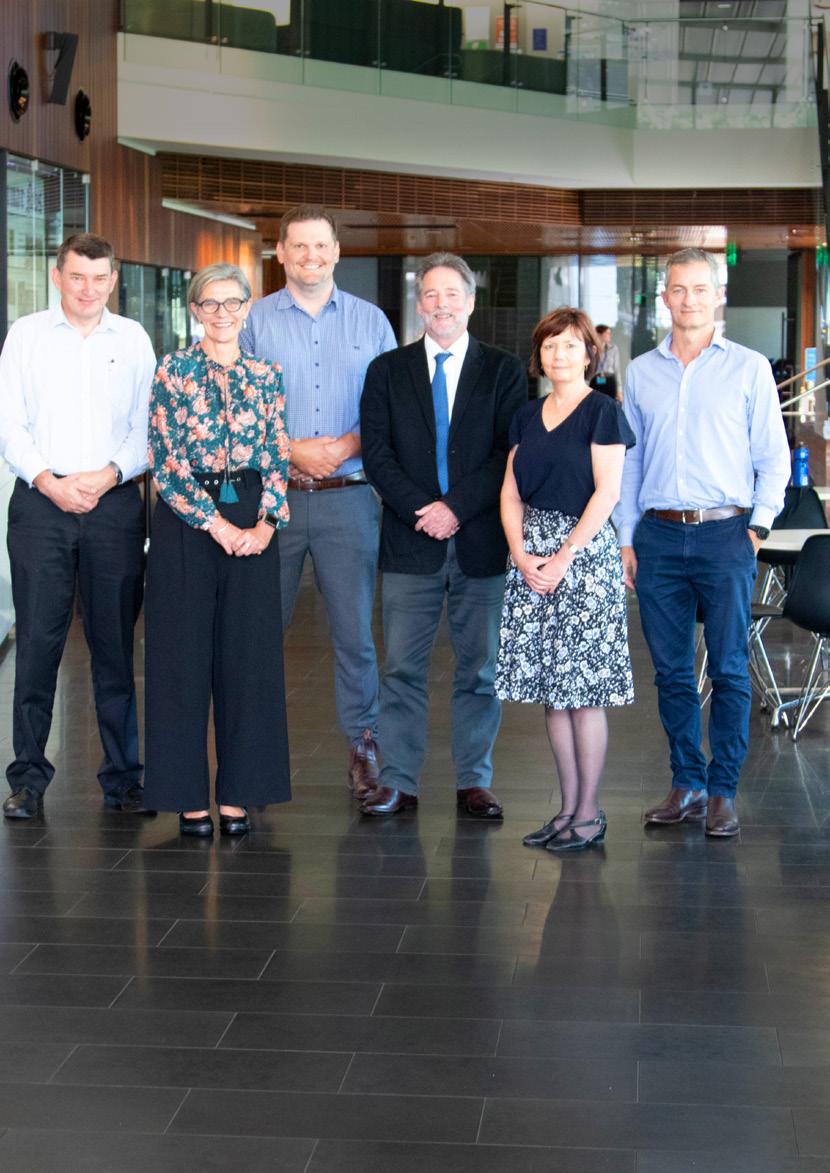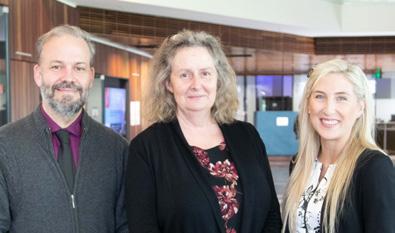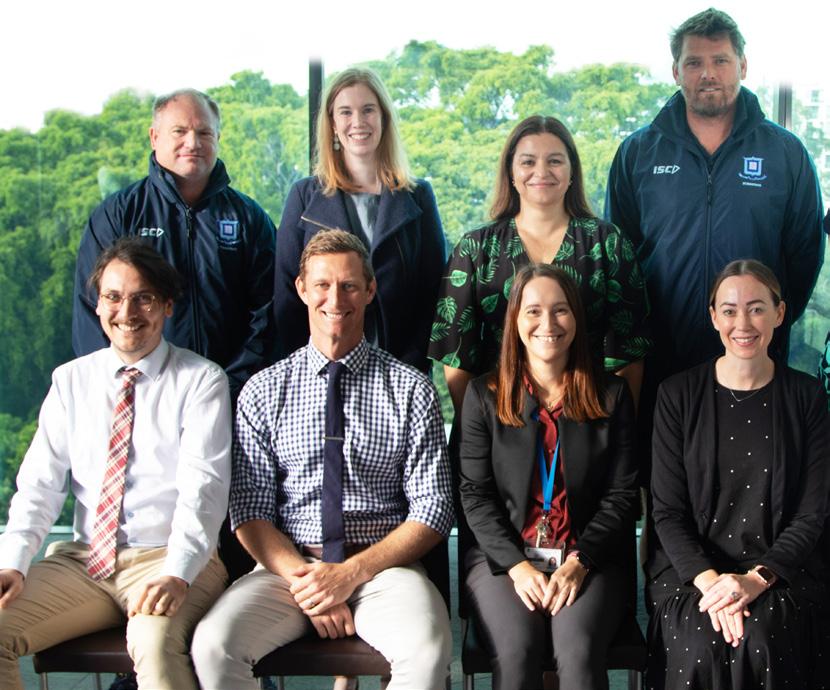
3 minute read
The power of effective thinking
In preparing Brisbane Grammar School students for a changing world, the School seeks to develop their capacities for innovation, entrepreneurship, lifelong learning and responsible global citizenship by focusing on their critical and creative thinking, communication, and collaboration skills.
To achieve these goals, BGS has developed an innovative approach to teaching and learning known as Effective Thinking Cultures (ETC).
Researched, designed and implemented by BGS leaders and teachers, ETC is one of the School’s five Critical Projects. In her role as Executive Director Educational Innovation, Jacqui Zervos leads the Learning Organisation Team – a specialist group responsible for working with staff on the improvement of the School’s educational practices.
“ETC is an evidence-informed approach to the School’s educational purpose and curriculum system, focused on developing the quality of student thinking,” Ms Zervos said.
“It supports the systematic development of our boys as effective thinkers and self-regulated learners – thinkers who can respond confidently to anticipated and unanticipated challenges during and beyond their years of formal education.”
2021 School Vice Captain Harry Anstey-Walsh spoke about ETC at an assembly in Term 1 and described it as an “ethos ingrained into our daily lives at BGS. It is the culture that has allowed me to grow as a person during my time at school.”
“ETC empowers boys to take charge of their own learning. It lets boys thrive in and out of the classroom because their genuine curiosity drives them to analyse, evaluate, and make informed decisions in everything they do. More than this, it also reflects the importance BGS places on individual students and their unique journeys through the School.”
Through ongoing evidence-gathering, targeted professional learning and collaboration, BGS teachers develop strategies to make intentional and informed choices about their teaching practices to optimise each boy’s learning.
Ms Zervos said developing young men who have internalised the ability to reflect on and become adaptive in their thinking and behaviour takes time and a dedicated and consistent school-wide culture.
“We are aiming to build the specific thinking capabilities that help students respond to the immediate demands of their learning or assessment, and to nurture the enduring capabilities that shape character and will serve students for life,” she said.
The result is independent BGS graduates who are prepared for uncertainty and confident to lead.
BGS LEARNING ORGANISATION TEAM
Jacqui Zervos – Executive Director Educational Innovation. Leadership of the educational innovation and improvement agenda.
Dr Hannah Campos-Remon – Director of Organisational Learning. Research, monitoring and evaluation of programs and practices.
Chris Price – Director of Learning Programs. Leadership of ETC curriculum development.
Andrew Webb – Learning Data Manager. Leader of educational data management and its representation for staff and students.
Professor Peter Taylor – Special Advisor Educational Improvement. Strategic academic advice and mentoring.
Helen Johnston – Director of Teacher Development. Strategic leadership of professional learning.
Nick Holland – Head of Learning Analytics. Leadership of data systems to support learning and improvement.
PEDAGOGICAL COACHES
In 2021, the School has given particular attention to the work of academic leaders as the operational implementers of ETC in their departments. Three pedagogical coaches provide direct and essential support for this work. Pedagogical coaches routinely meet with leadership teams from academic departments to assist them in planning for strategic improvement.

Image: Gus Robertson, Jenny Tap and Julia Vedelago
LEAD LEARNERS

Image: Back row from left: Carl Marshall, Dominique Andrews, Stella Gardner, Nick Kruger, Anne O’Rourke. Front row from left: Ben Newth, Dylan Koopman, Kerry Inder, Megan Marshall, Crystal Thompson. Absent: Lizzy van Rooyen.
BGS has appointed and trained 11 teachers to lead the professional learning of individuals and groups of teachers in ETC. These teachers, known as Lead Learners are both excellent practitioners in the classroom and pioneers in building a culture of collaborative practice across the School. Every week, they meet to engage in professional learning and implement learning plans for the group of teachers they work with.










